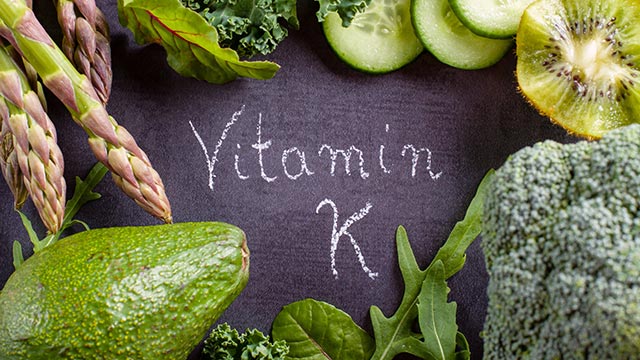New research on vitamin K suggests that it may promote eye health
03/28/2019 / By Edsel Cook

Belgian researchers announced a new health benefit that vitamin K brought to the eyes. They reported that the vitamin protected the arteries that supplied the ocular organs with fresh blood from harmful calcification.
Their recently published paper involved the participation of nearly 1,000 randomly selected Flemish adults in their 40s. The long-term study spanned the course of 11 years.
The participants underwent evaluation of their levels of vitamin K and active matrix Gla protein (MGP) at the start and end of the study period. MGP prevented the process of calcification from taking place in arteries, ensuring the regular flow of blood through the vessels.
The diameter of the retinal microvascular vessels of each patient was also measured. The data were compared in order to see if there was any connection between a vitamin K deficiency and the size of the blood vessels connected to the eyes.
Based on their findings, the Katholieke Universiteit Leuven (KU Leuven) researchers observed that taking vitamin K supplements could help maintain the health of the eyes by protecting the optic nerves from injury caused by glaucoma. They suggested that future studies should try to identify the specific molecular pathways that are activated by the vitamin. (Related: A short introduction to vitamin K deficiency.)
Vitamin K activates a protein that maintains vital parts of the eye
Large amounts of MGP could be found in the eye. The protein held a big role in supporting the health of various important parts of the organ. MGP maintained the trabecular meshwork responsible for draining excess aqueous fluid from the eye, the sclera that covers the eyeball, and the retinal ganglion that gets the visual data collected by the eye.

Vitamin K is needed to activate MGP. This relationship caused the KU Leuven researchers to suspect that a vitamin K deficiency could affect eye health.
The participants in their study belonged to FLEMENGHO, a longitudinal cohort belonging to a large, long-term population study that started in 1985. The members of the cohort were Flemish, the part of the Belgian population that spoke Dutch. Due to this focus, the researchers noted that the results of their study might not apply to people who are a part of a different ethnicity.
Furthermore, they also did not directly measure the concentrations of vitamin K in the participants. Such an assay would be far too complicated for the scope of their study. Instead, they evaluated the levels of inactive MGP, which served as a biomarker for vitamin K in people.
There is more to this vitamin than meets the eye
Despite the aforementioned limitations of their study, the KU Leuven researchers believed that they presented strong evidence regarding the importance of vitamin K in maintaining healthy eyes. They were able to show an association between the state of tiny blood vessels in the retina with the levels of inactive MGP and, by extension, the amount of vitamin K in the body.
The K2 form of vitamin K is currently recommended as a supplement that supports the normal functions of the various blood vessels in the body. The Belgian study suggested that vitamin K2 supplements could also be taken to head off the chances of glaucoma-based damage to the eyes.
Other studies have identified 17 proteins in the body that need vitamin K. These molecules are responsible for the proper clotting of blood, the sturdy state of the bones, and the cardiovascular system. There may be more critical proteins that depend on this vitamin.
You can get vitamin K from green leafy vegetables like asparagus, cabbage, kale, and spinach. The nutrient is also found in egg yolks, green tea, potatoes, soy beans, tomatoes, and whole wheat.
Sources include:
Submit a correction >>
Tagged Under:
cardiovascular system, eye health, eyes, glaucoma, nutrients, prevention, research, retina, supplements, vision, Vitamin K, vitamin k deficiency, vitamins
This article may contain statements that reflect the opinion of the author



















